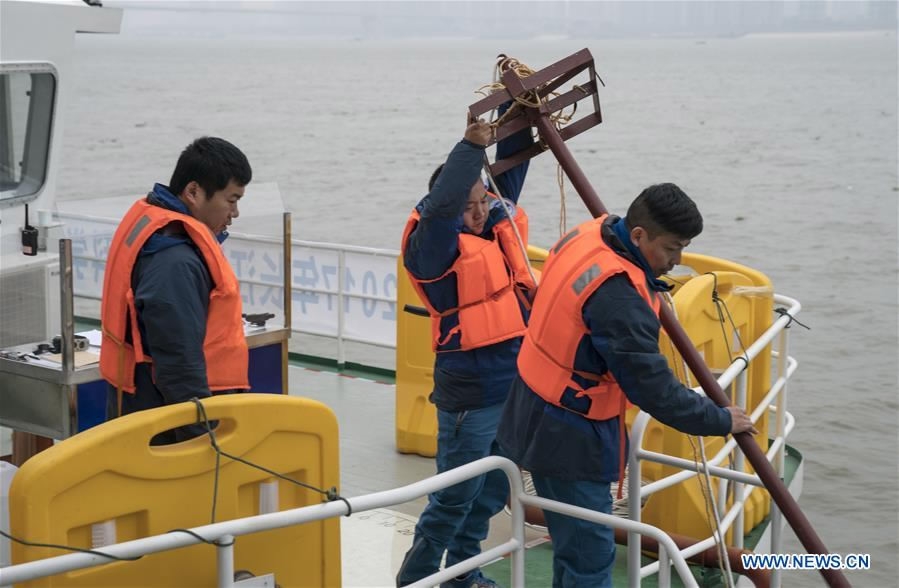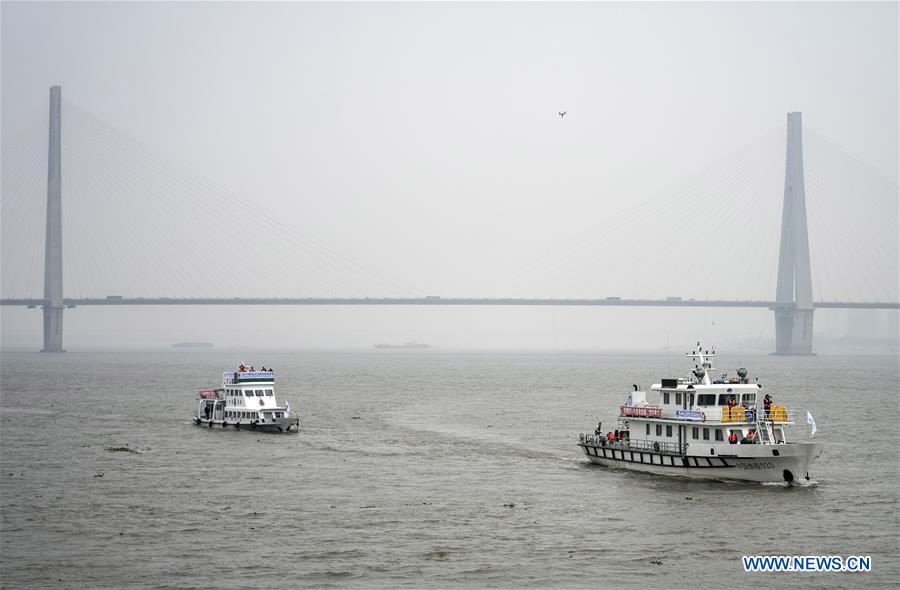
Animal
07:56, 11-Nov-2017
China to survey endangered porpoises in Yangtze River

China has launched its first survey of endangered finless porpoises in five years in a move to stem the decline in their population and further rehabilitate their habitat in the Yangtze River.
Two scientific survey ships left for the upper reaches of the Yangtze on Friday morning from Wuhan, a central Chinese city on the river, at the start of the 40-day survey.
The survey is carried out by researchers from the Ministry of Agriculture and the Chinese Academy of Sciences (CAS), and covers areas along the river from the city of Yichang in central China's Hubei Province to the estuary in the eastern city of Shanghai.

Researchers install a sonar on a scientific survey ship in Wuhan, central China's Hubei Province, November 10. /Photo via Xinhua
Researchers install a sonar on a scientific survey ship in Wuhan, central China's Hubei Province, November 10. /Photo via Xinhua
The survey will use sonar and remote control drones to collect data on the porpoise population, according to survey commander Wang Ding.
The previous survey in 2012 found the population of finless porpoises had fallen below 1,000. One in 2006 found the number down to 1,800 from 3,000 at the turn of the 21st century.
"As the flagship species in the Yangtze, finless porpoises are the barometer of the river's ecological conditions," said Cao Wenxuan from the CAS.

November 10: Two scientific survey ships leave for the upper reaches of the Yangtze River from Wuhan in central China's Hubei Province. /Photo via Xinhua
November 10: Two scientific survey ships leave for the upper reaches of the Yangtze River from Wuhan in central China's Hubei Province. /Photo via Xinhua
The Ministry of Agriculture announced a Yangtze River Finless Porpoises Rescue Action Plan (2016-2025) at the end of 2016, calling for on-site protection, relocation protection and genetic protection of the species.
"The declining trend of wild finless porpoises has not changed," said Cao. "Busy navigation and illegal fishing are to blame for the decrease."
1126km
Source(s): Xinhua News Agency

SITEMAP
Copyright © 2018 CGTN. Beijing ICP prepared NO.16065310-3
Copyright © 2018 CGTN. Beijing ICP prepared NO.16065310-3